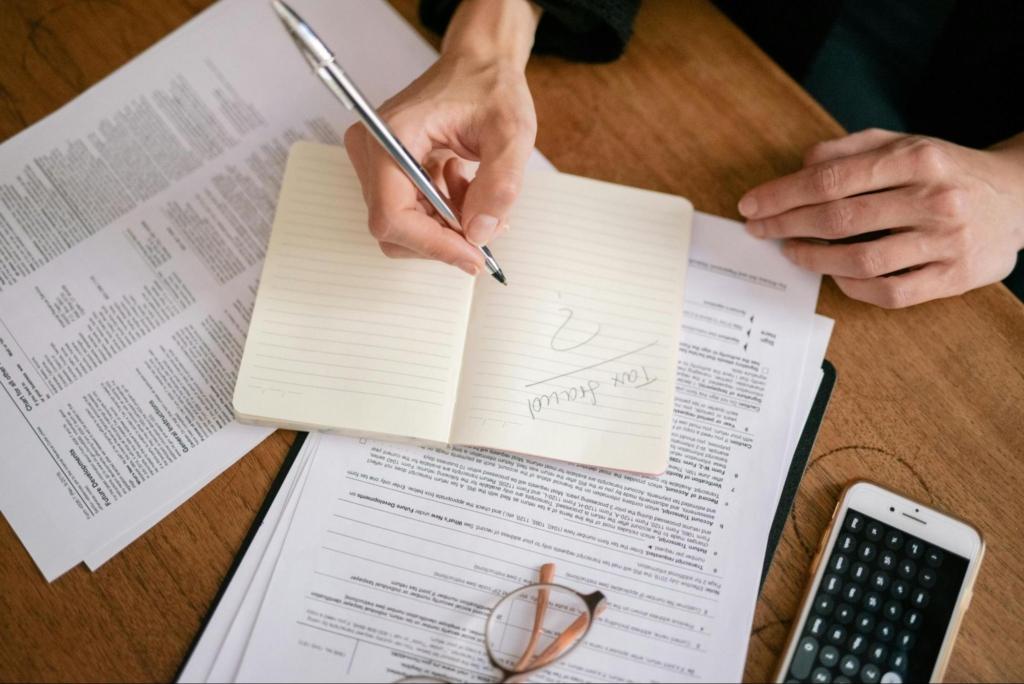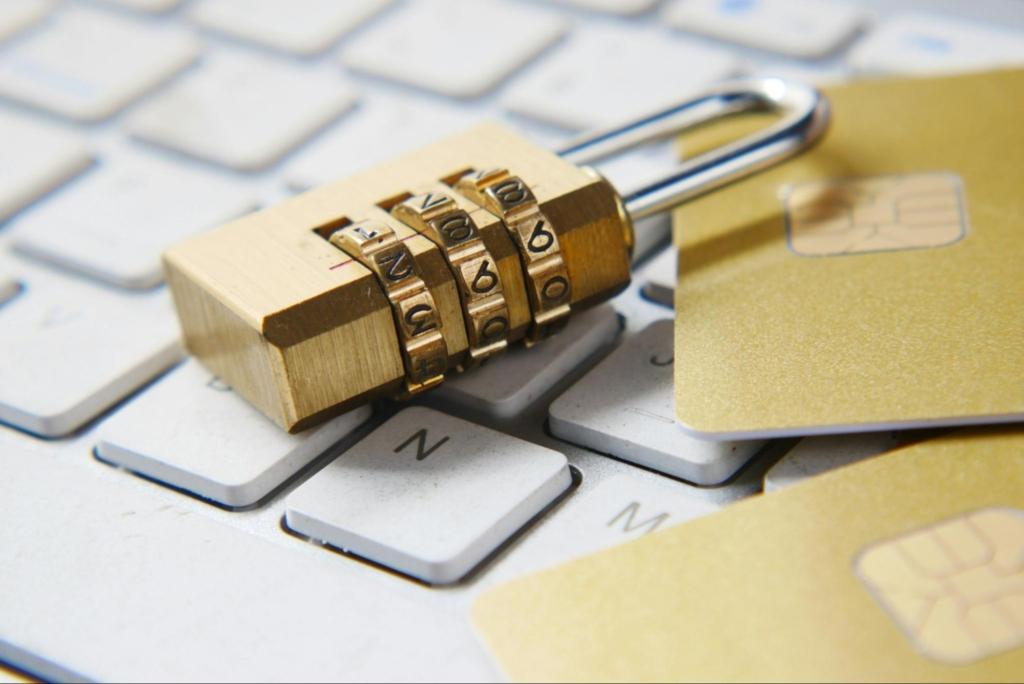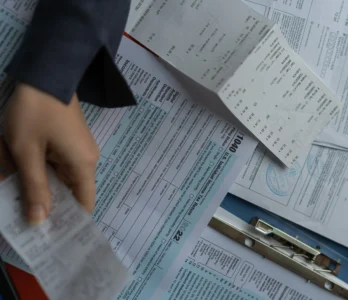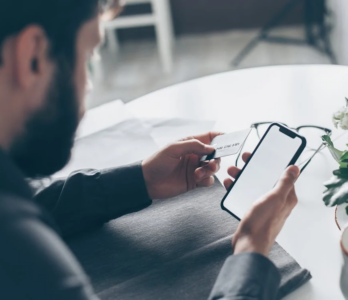If someone gains access to your bank account number, routing number, and other security details, they can use this data to commit various types of financial fraud. But can someone hack your bank account with the routing number and account number, or do they need more information to access it?
In this guide, we’ll provide the answer, reveal how criminals can steal your money, and explain what they can do if they obtain your bank info. We’ll also give you tips on what to do if you become a victim of financial fraud.
Is It Safe To Give Someone Your Bank Account Number?
You should keep your bank account number as private as possible. While criminals will need more than your bank account number to cause serious financial damage, it’s still a valuable piece of information. When combined with other data like your routing number, driver’s license number, or home address, it may allow criminals to make illegal purchases or commit fraud in your name.
Still, you’ll have to provide your bank account number to some legitimate companies or individuals. This includes:
- Tax filing services to receive and pay for tax credits
- Online money transfer services like PayPal to receive funds
- Your employer to enable direct deposits
- Loan/credit card providers to set up automatic bill withdrawals
In these cases, giving out your bank account number and/or routing number is safe and necessary. However, ensure you only provide this data to people or institutions you know and trust.
Can Someone Hack Your Bank Account With Your Account Number?
The short answer is no—criminals can’t hack your bank account using only your account number. Although this number is unique to you and represents a direct link to your funds, criminals need additional personal data like your email, username, and password to hack your account.
Still, if they manage to obtain the additional information they need, they can use your bank account number to steal your funds. They can do this by setting up direct withdrawals to their account or making unauthorized electronic payments.
Can Someone Hack Your Bank Account With a Routing Number?
Your routing number is a nine-digit number identifying the financial institution where your bank account is held. Criminals can’t hack into your bank account or do much harm by obtaining this number alone. However, in combination with other bank details, they can commit routing number scams like creating counterfeit checks and using them to make illegal withdrawals.
What Bank Account Information Is Safe To Give Out?
Generally, sharing your bank account or routing number won’t do much damage—as long as you don’t share both. If criminals get their hands on both numbers, there’s a higher chance they’ll be able to set up fraudulent transactions and direct unauthorized debits.
The more banking information criminals have, the more financial damage they can cause. Therefore, it’s best not to share any of your account data, especially your:
- Username
- Password
- Social Security number
- PIN
- Other security details
This information, along with your bank account and routing number, will allow criminals to commit financial fraud and steal your funds easily.
How Do Thieves Steal Money From Bank Accounts?
Criminals use numerous ways to steal money from your bank account, but the most common ones include:
- Phishing attacks—Criminals may send fake emails or text messages that claim to come from your bank or other legitimate companies like Apple. These emails/messages often include links to fake websites that could steal your bank data if you click on them
- Hacking—Hackers can break into your computer or mobile phone and steal personal and financial information. They may also target companies that store your bank account data, like online stores and payment processors
- Malware—Cybercriminals can trick you into downloading malware that allows them full access to all the personal data stored in your computer/mobile phone
- Data breaches—Criminals will sometimes hack into financial institutions’ databases and leak customer information to the dark web, where they’re sold and often used to commit fraud
- “Skimming” and “shimming” devices—Criminals may attach small devices to ATMs that steal your card details when you insert or swipe the card
- Mail-digging—In some cases, scammers may dig through your mail or trash to steal your old bank statements or similar documents that contain your bank details
Can Someone Steal Your Bank Info From a Check?
Yes, criminals can steal bank information from a check. In fact, both your bank account and routing numbers are fairly easy to find and steal from checks since you must include them every time you write or cash a check. So, if your check falls into the wrong hands, criminals can use it and the data they obtain from it to conduct various fraudulent activities.
What Can a Scammer Do With Your Bank Account Number and Routing Number?
If criminals obtain both numbers, they can do serious financial damage in your name. Most commonly, they use these numbers to:
- Commit automated clearing house (ACH) fraud
- Spend money online
- Create counterfeit checks
- Launder money
- Conduct tax fraud
Commit Automated Clearing House (ACH) Fraud
By stealing your bank account and routing numbers, criminals can use ACH—electronic bank-to-bank payment—to:
- Transfer money out of your bank account
- Set up bill payments for services you don’t use
- Make purchases at stores that accept ACH payments
To prevent ACH fraud, monitor your bank account regularly and look for unexpected transfers or unusual values in your checking or savings account. Smaller withdrawals are especially alarming because criminals typically make them to remain undetected.
Spend Money Online
Scammers may trick you into sharing your bank details by creating fake shopping websites that require entering your routing and account number to complete the purchase. They then steal your bank information and use it to shop online using your money.
While some websites require your driver’s license number or other state identification data to make online purchases, others only need your bank account and routing number. When criminals obtain these numbers, they can make large purchases and steal your money.
To prevent this scam, beware of common signs of fake shopping websites like:
- Poor grammar and design
- A domain name that looks similar to another legitimate site
- A lack of company details and contact info
- Limited payment options like ACH or wire transfers only
Create Counterfeit Checks
Criminals can use their bank account and routing numbers to create fake checks and cash them or use them to pay for goods and services. They may also deposit funds into their own account through their mobile phone, bank, or ATM.
However, you can spot fake checks by searching for warning signs like:
- A lack of an official financial institution logo or a faint copy of one
- A lack of the bank’s address or an address that’s slightly different from the official one
- Inconsistency between the check numbers in the bottom line and the upper-right corner
Launder Money
Scammers may entice you with a job opportunity only to steal your bank information and launder money through your account. If you agree to interview for the job, they may ask for your bank account information or request that you open a new account to receive payments. They then prompt you to send some of the money or goods you receive to other accounts, unknowingly committing money laundering.
To avoid this scam, steer clear of employers who ask you to transfer money to other accounts.
Conduct Tax Fraud

Criminals can use your bank account details in combination with other stolen information to file fake tax returns and keep the refunds for themselves. Meanwhile, the IRS thinks you’ve committed fraud.
Here are the signs you might be a victim of tax fraud:
- The IRS claims you’ve filed a tax return when you haven’t
- You got a notification for an unfamiliar IRS.gov account
- You received unfamiliar tax documents
What To Do if Your Bank Account Number Is Stolen
If your bank account and/or routing numbers have been stolen, you should immediately:
- Contact your bank
- Report fraud
- Change your bank account details
- Transfer funds to a high-security bank account
Contact Your Bank
Contact your bank immediately if you suspect your bank account number may be stolen. They can monitor your account, and their fraud detection and resolution teams can help you decide on the next step. For example, you may consider freezing your credit to stop the criminals from making further unauthorized transactions.
Before going to the bank, however, you should review recent bank statements for suspicious transactions and prepare a list of unauthorized transactions to share with your bank.
Report Fraud
Reporting fraud committed using your bank account and routing numbers can protect you from fraud in the future and potentially help catch the perpetrators. You should report the incident to the Federal Trade Commission (FTC) at IdentityTheft.gov since they can help you recover from any losses. You should also contact your local police department so they can investigate the case.
Change Your Bank Account Details

After experiencing bank fraud, it may be best to close the compromised account and open a new one with different account numbers to prevent fraudulent activities from happening again. When setting up a new account, make sure you:
- Only share your account details with companies/people you trust
- Protect your new account by using a strong password and adding multi-factor authentication
- Change passwords on other online accounts for extra safety
While it may take some time, your bank should help you transfer any automatic payments or direct deposits to your new account so that the process goes as smoothly as possible.
Transfer Funds to a High-Security Bank Account
To ensure criminals don’t get their hands on your bank account information and use it for fraudulent activities, consider keeping your funds in a bank account with strong security features.
Preventing fraud is difficult because banks typically detect security flaws after criminals have already committed fraud. However, a high-security banking platform like FortKnox offers advanced fraud protection features that help you prevent fraud from happening altogether.
FortKnox is a great place to secure your finances while still using an operating account in your bank to make deposits and withdrawals. This high-yield savings account uses enhanced fraud protection security protocols and provides federal insurance as an extra layer of financial safety.





